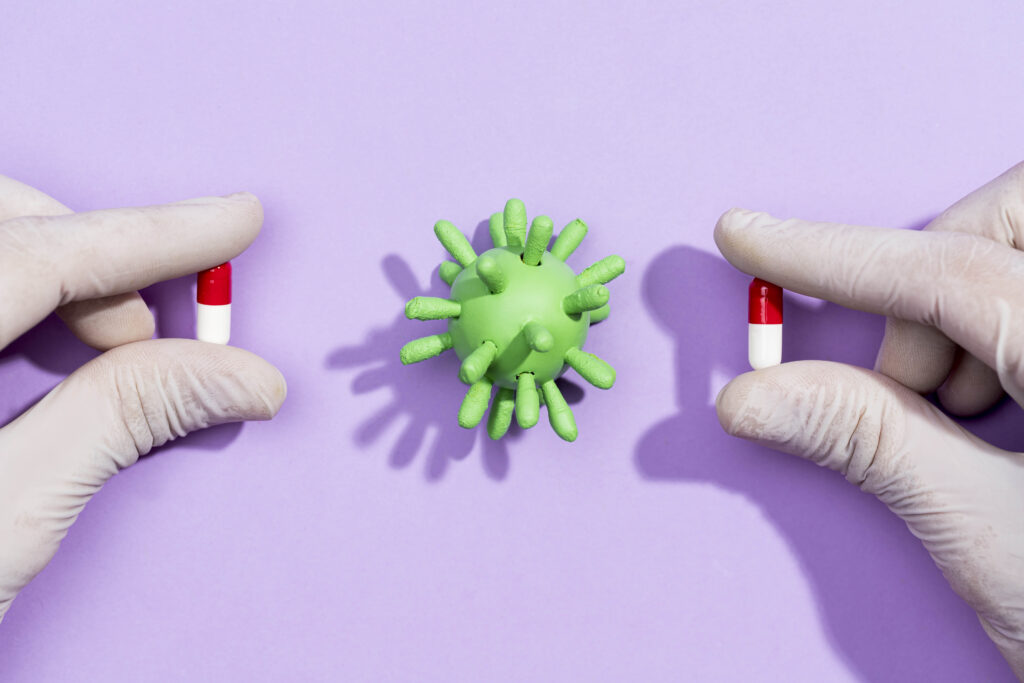How Do You Know If You Have Candida in Your Gut?

Candida is a type of yeast that naturally exists in your gut. Normally, it coexists peacefully with your beneficial gut bacteria, contributing to a balanced microbiome. However, when Candida overgrows, it can disrupt digestion, immunity, and even mental health. Recognizing whether you have a candida overgrowth is crucial for restoring gut health and overall wellness.
Candida overgrowth, also called candidiasis, may silently affect your body for months before noticeable symptoms appear. Paying attention to subtle signs, understanding the root causes, and supporting your gut with proper nutrition and probiotics can help you restore balance and prevent complications.

What Is Candida Overgrowth?
Candida is a natural yeast that lives in the gastrointestinal tract and other parts of the body. Under normal conditions, it is harmless. Beneficial gut bacteria help control its population, keeping it in check. However, if your gut flora is disrupted, candida can multiply excessively.
Factors such as prolonged antibiotic use, diets high in sugar and refined carbohydrates, chronic stress, hormonal changes, and underlying medical conditions like diabetes can all create an environment favorable to candida overgrowth. Once it begins to dominate, Candida can damage the gut lining, produce toxins, and cause systemic inflammation.
Recognizing Candida Symptoms
Digestive Disturbances
Digestive issues are often the first signs of candida overgrowth. You may notice bloating, gas, or irregular bowel movements. Some people experience constipation, while others struggle with diarrhea or food intolerances. Candida toxins can irritate the gut lining and impair nutrient absorption, making these symptoms more pronounced.
Physical and Systemic Symptoms
Candida overgrowth can also manifest beyond digestion. Fatigue and low energy levels are common, as the body diverts resources to fight off the imbalance. Skin problems, such as unexplained rashes, eczema, or persistent itching, can also indicate an overgrowth. Oral thrush, marked by a white coating on the tongue, is another potential sign.
Mood and Cognitive Effects
Candida overgrowth can impact mental well-being. Yeast toxins may interfere with neurotransmitters, leading to brain fog, difficulty concentrating, irritability, or anxiety. Sleep disturbances are also reported by many individuals with candidiasis, linking gut health to mood and cognitive function.
Candida Overgrowth: Symptoms, Causes, and Remedies
| Category | Details | Suggested Actions |
| Digestive Symptoms | Bloating, gas, constipation, diarrhea, food intolerances | Eat fiber-rich foods, avoid sugar/refined carbs, take Bioma Digestive & Gut Repair |
| Physical Symptoms | Fatigue, skin rashes, oral thrush, eczema, unexplained itching | Include antifungal foods (garlic, coconut oil), support immune health, probiotics |
| Mental & Cognitive Effects | Brain fog, difficulty concentrating, irritability, anxiety, sleep issues | Manage stress, improve sleep, incorporate gut-friendly lifestyle habits |
| Root Causes | Antibiotic use, high-sugar diet, chronic stress, hormonal imbalances, diabetes | Identify triggers, maintain balanced diet, reduce alcohol/sugar intake |
| Supportive Remedies | Probiotics, antifungal foods, prebiotic-rich diet, stress management | Use supplements like Bioma Digestive & Gut Repair, regular exercise, meditation |
Testing for Candida Overgrowth
A definitive diagnosis requires professional testing. Healthcare providers may perform stool analyses to identify yeast populations in the gut or blood tests to detect Candida antibodies. Urine tests can also measure specific metabolic byproducts of yeast overgrowth.
While professional testing is the most reliable, certain lifestyle and symptom patterns may indicate an imbalance. Persistent sugar cravings, chronic digestive discomfort after consuming high-carb foods, and unexplained fatigue are common signals that candida may be affecting your gut. Paying attention to these signs can prompt timely consultation with a healthcare provider.

Restoring Gut Balance
Dietary Adjustments
A balanced diet is one of the most effective ways to control candida overgrowth. Reducing sugar, refined carbohydrates, and alcohol limits the food sources that fuel yeast. Simultaneously, antifungal foods like garlic, coconut oil, and fiber-rich vegetables support beneficial bacteria that help maintain gut balance.
Targeted Probiotics
Probiotics are essential for restoring microbial harmony. A supplement like Bioma Probiotics promotes beneficial bacteria growth, strengthens the gut barrier, and supports regular digestion. This makes it a powerful ally in reducing candida overgrowth and restoring overall gut health.

Lifestyle Support
Lifestyle changes also play a vital role. Stress management through meditation, yoga, or deep-breathing exercises strengthens the immune system. Adequate sleep helps your body regulate hormones and repair the gut lining. Regular physical activity supports digestion and encourages a healthy microbial environment.
Preventing Candida Overgrowth in the Long Term
Long-term gut health requires consistency. Maintaining a fiber-rich, prebiotic diet helps beneficial bacteria flourish while limiting sugar and refined carbs reduces yeast overgrowth. Oral hygiene and proper hygiene practices can prevent yeast from colonizing the mouth or other areas. Regular exercise, quality sleep, and stress management all support a resilient immune system, reducing the risk of recurrence.
Taking proactive steps ensures that candida remains under control and that your gut microbiome functions optimally. By addressing both diet and lifestyle factors, you can enjoy improved digestion, higher energy, and better mental clarity.

Regain Your Gut Health and Balance
Candida overgrowth can be challenging, but recovery is possible. Understanding the symptoms, seeking professional assessment, adjusting your diet, supporting gut bacteria with probiotics, and incorporating healthy lifestyle practices are essential steps to reclaim your gut health.
Using a product like Bioma Probiotics can provide targeted support to restore balance in the gut, ease digestive discomfort, and strengthen immunity. Taking action today ensures a healthier, more resilient gut for years to come.
Related articles



